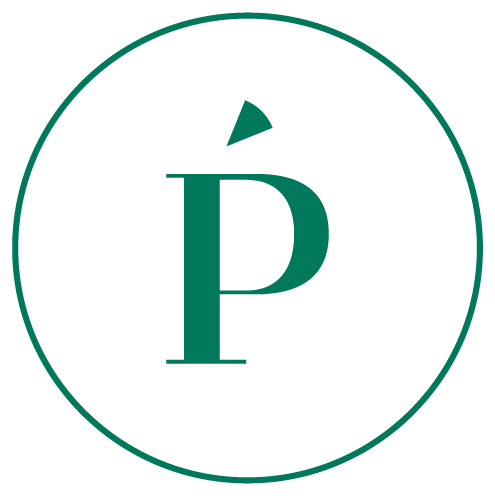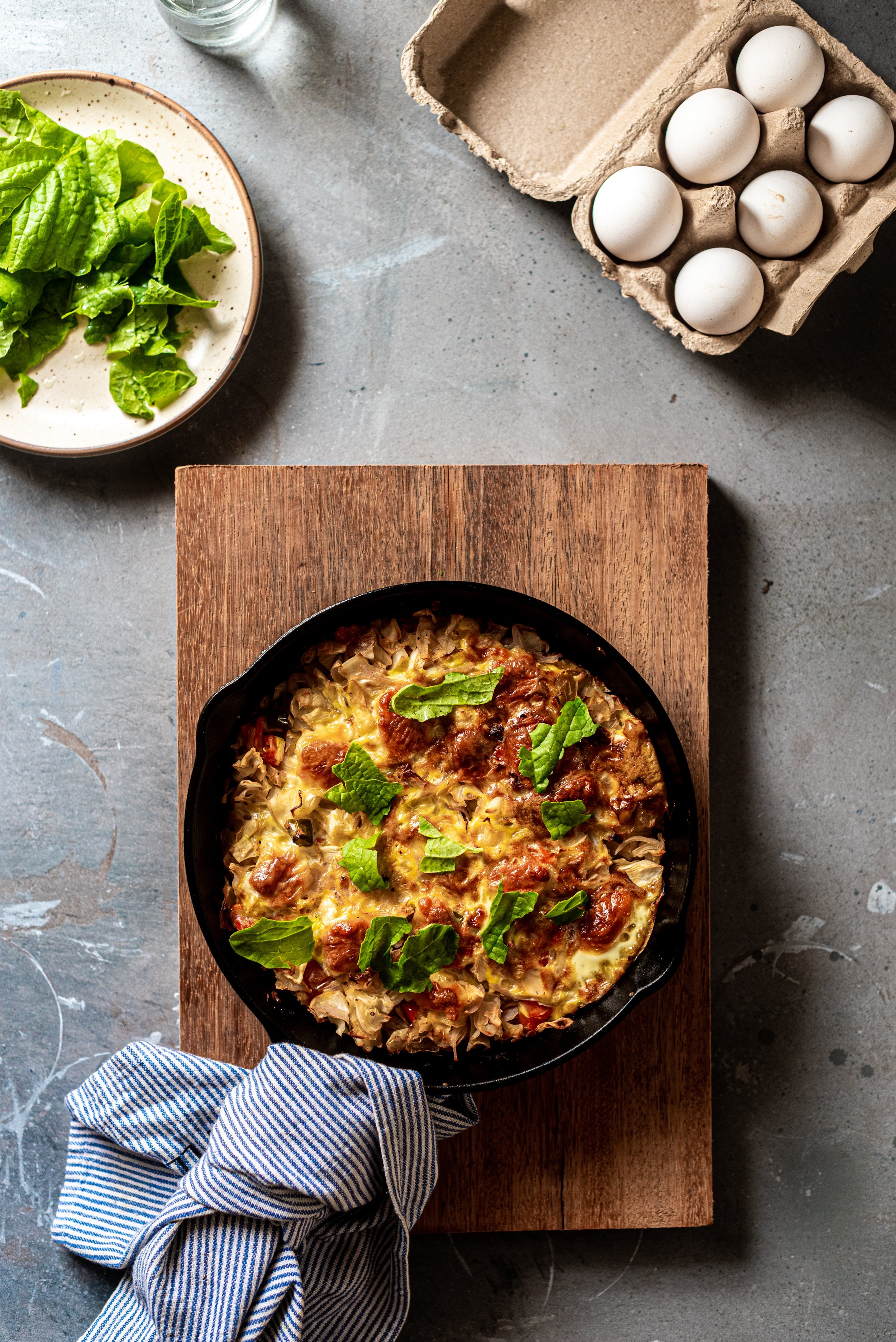Navigating all the non-tox, low-tox and safe cookware options on the market can feel overwhelming! Often products are marketed as safe but, in fact, can contribute to the toxic load in our bodies and cause health issues over time. To help you learn more about what to avoid, what to look for and what I recommend, I’ve put together a go-to guide for finding the best non/low-tox cookware available.
A big big big thank you to Amelia from @a.glimpse.of.amelia who helped me collate these brand recommendations for you. Be sure to give her a follow on Instagram if you love this type of content and healthier / low-tox recommendations.
Let’s start with some common cookware types and what to avoid/look for.
NON-STICK COOKWARE
Non-stick pots and pans are worth avoiding - they’re problematic because of the perfluorooctanoic acid (PFOA) and Polytetrafluorethylene (PTFE) used in their coatings. I’m sure you’re familiar with Teflon - this is most often associated with PFOAs and PTFEs. These are ‘forever chemicals’ that persist in your body and the environment. When heated, these pans can release toxic fumes into the air. With prolonged exposure over time, PFOAs and PTFEs have been linked to health issues associated with thyroid function, various cancers and more.
DIFFERENT TYPES OF METAL COOKWARE
Chemical leaching is another major health concern associated with some cookware. For example, some products can leach heavy metals such as aluminium, lead, nickel and cadmium into your food when heated to high temperatures or long cook times in acidic food like tomatoes.
Aluminium has been associated with higher rates of Alzheimer's disease and other neurological disorders, anaemia, contact allergies and cancers.
Lead toxicity has been associated with various health conditions, including high blood pressure, kidney disease and impaired reproductive function. Exposure to lead is also particularly harmful to young children, causing learning and developmental problems.
Exposure to high levels of cadmium can lead to increased inflammation and contribute to chronic disease development.
Some stainless steel products contain nickel which can leach from food during long cooking times in an acidic base. Nickel leaching into your food can cause digestive issues, headaches, allergies and increased rates of cardiovascular and kidney disease and be particularly problematic for those with an allergy.
STAINLESS STEEL
Stainless steel is a good choice because it is one of the safest materials for cookware. It is versatile, durable, long-lasting, and not susceptible to rust or corrosion. It's often recommended as one of the safest types of cookware. However, stainless steel cookware can release small amounts of chromium and nickel. Leaching of these can be dependent on the type of food you are cooking, the temperature and duration of cooking, as well as the grade of stainless steel used.
There are various grades of stainless steel. Flip over stainless steel cookware and you’ll find the grade printed at the bottom. This grade identifies how resistant it is to rust and corrosion. High-quality, food-grade stainless steel cookware is usually in the 300 series, with most ideal being 316. You can also keep an eye out for the numbers 18/10 and 18/8, which are part of the 300 series. The first number indicates the percentage of chromium and the second the percentage of nickel.
For most people, nickel is not usually an issue. However if you have an allergy or a sensitivity to it, it can result in allergic reactions, eczema, dermatitis and skin conditions. If you have a nickel allergy, look for 18/0 stainless steel cookware, which is part of the 400 series, as it contains little to no nickel. Grade 430 stainless steel is another alternative, as it is more affordable and has low nickel content. However, keep in mind that these are more vulnerable to corrosion.
PROS
Can last a lifetime
Versatile
Not susceptible to rust or corrosion
Proper cooking technique can help you achieve a fairly non-stick surface (even with eggs and meats)
CONS
Can contain nickel and chromium. For most people, nickel is not usually an issue. However if you have a nickel allergy or sensitivity it can result in allergic reactions, eczema, dermatitis and other skin conditions
The above photos are from Solidteknics NONI™ (nickel free) stainless steel range. These are what I’m currently using and cannot recommend them enough! When you spend $149 with Solidteknics and use my code “jordiepieface” you’ll get a free Lil Flippa worth $39.95
IRON COOKWARE
When looking at iron cookware options, you often think of a pan that will last a lifetime. They’re heavy, scratch resistant and durable. Personally, I would look to avoid enamelled iron due to similar issues noted above regarding ceramic coatings.
Iron does leach from cast and wrought iron pots and pans into food whilst cooking. Acidic foods will contribute to more leaching, along with how frequently the pots and pans are used for cooking. This is something to be mindful of, especially for those with haemochromatosis. Please speak to your chosen healthcare practitioner before choosing to use iron cookware.
A great iron cookware brand I’ve been using in my kitchen is made by Solidteknics. They’re an Australian-owned business and make their cookware products locally too. They use wrought iron, which allows their pans to be half the weight of heavy traditional cast iron. Solidteknics pans are made from wrought iron and have no synthetic or toxic coatings. They’re free from the heavy metals I mentioned above and have no joins, screws or rivets, which means super easy cleaning. You can use their cookware on all heat sources in the kitchen, as well as your BBQ. They’re definitely a pricey investment, but they’re also built to last forever! Solidteknics values quality and longevity - their pans are perfect to pass on to your kids and get them started with non-tox cooking from the start.
It’s also worth mentioning that Solidteknics pans can be seasoned with oils to make them non-stick (I recommend using ghee or tallow). Often people buy non-stick cookware for ease of use, and I totally understand this - but not at the risk of our health. These iron pans are a win-win scenario for easy cooking and cleaning AND keeping your food free of dangerous toxins.
PROS
Durable
Can last a lifetime
Have even heat conduction
They don't leach any toxins into food
Are non-stick when properly seasoned
CONS
They're heavy
The seasoning layer needs to be maintained
Acidic foods can contribute to iron leaching into food while cooking. This can be an issue if you already have high iron levels (haemochromatosis)
BRAND RECOMMENDATIONS
LODGE CAST IRON PANS - these come pre-seasoned and are made in the USA.
VICTORIA CAST IRON COOKWARE - these come pre-seasoned with organic flaxseed oil.
STAUB - cast iron coated in enamel
SOLIDTEKNICS (my personal fave) - Aus Ion Wrought Iron Cookware
When you spend $149 with Solidteknics and use my code “jordiepieface” you’ll get a free Lil Flippa worth $39.95
CARBON STEEL
Carbon steel cookware is much loved by chefs—it’s great for stir-frying and sautéing! Carbon steel is kind of similar to cast iron, but much lighter weight. These pans do require seasoning like cast iron pans do. Compared to stainless steel, carbon steel can tolerate higher temperatures, but are more prone to rust and require a little extra care than stainless steel does (for example, they’re not dishwasher-safe and should be hand-washed). Carbon steel cookware is generally a great non-toxic cookware option, but you’ll want to careful because some carbon steel pans come with a *mystery* non-stick coating (which might use PFAS).
PROS
They're light and durable
Easy to cook with
Great heat retention
Are non-stick when properly seasoned
CONS
Needs to be seasoned like cast iron
Can leach iron
Some might have a non-stick coating (avoid these)
BRAND RECOMMENDATIONS
DE BUYER (Carbon Plus Collection)
GLASS & CERAMIC COOKWARE
Some ceramic and glass cookware with particular glazes and/or coatings can leach cadmium and lead. The non-stick surfaces can also contain questionable ingredients like silicones, plastics, PTFE and nanoparticles like titanium dioxide. Often these types of cookware are perceived to be healthier, but it pays to know the finer details! Always look for certifications and be wary of ‘PTFE-free’ claims, as some companies can still add PFOA. These products are often marketed as healthier options when in fact they are just as bad as the Teflon non-stick alternatives.
If you prefer ceramic cookware, ensure the ceramic is 100% pure and not ceramic coated. The other concern with ceramic-coated cookware is that the coatings last only a short time (many lasting only 1-2 years) and, once scratched, should be discarded.
If you’re after ceramic or glass cookware products, particularly for slow cooking in the oven, make sure to look for products that are certified as free from cadmium and lead, avoid bright colours and ensure the glass doesn’t have any coloured markings on the inside or outside of the dish.
PROS
Non-stick coating
Easy to clean
Non-reactive to acidic foods
Lightweight
Low maintenance
CONS
Lose their non-stick properties over time
Less efficient heat distribution
Not all brands are oven safe
Not as durable as other options
CERAMIC BRAND RECOMMENDATIONS
COSMIC COOKWARE SWISS ILGA-CERTIFIED COATING - these have ISO global certifications in Australia, Eco Swiss certification and are PTFE, PFOA, Lead and Cadmium free.
CARAWAY COOKWARE - these are ethically manufactured, California Prop 65 certified and PTFE, PFOA, PFA, Lead and Cadmium free.
CRUMBLE PRE-SEASONED COOKWARE - these are FDA tested for leachable Lead and Cadmium, California Prop 65 certified and come pre-seasoned with organic vegetable oil.
CORNING WARE - casserole dishes
SILIT COOKWARE - nickel free
GLASS BRAND RECOMMENDATIONS
If you’re here on Life of Pie, you value your health. The last thing you want to do is use toxic cookware to prepare your food! It’s worth the time and money to find cookware products that you know won’t expose you and your family to unsafe toxins.
MY PERSONAL PICK
Solidteknics pots and pans are a great option to consider - the investment will be worth it in the long run, especially when you know they’ll last years into the future (even for your kids to enjoy!). My personal favourite is the Nöni™ (nickel free) stainless steel range below. I use them the most because they’re great if you’re cooking anything acidic like tomato or lemon-y based dishes, boiling, stewing, sautéing or oven dishes and you don’t need to worry about seasoning them like their wrought iron pans. And I can put them in the dishwasher (bonus!). But I do love and use both.
The best advice I have seen when it comes to cookware is, ‘Don’t rely too much on any one type of pan or dish.’ We recommend you use a little of this and a little of that as you cook - a blend between nickel-free stainless steel, iron, ceramic and glass dishes would be a wonderful balance!











